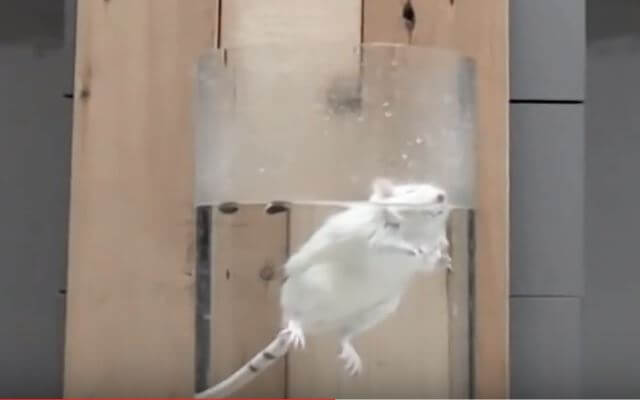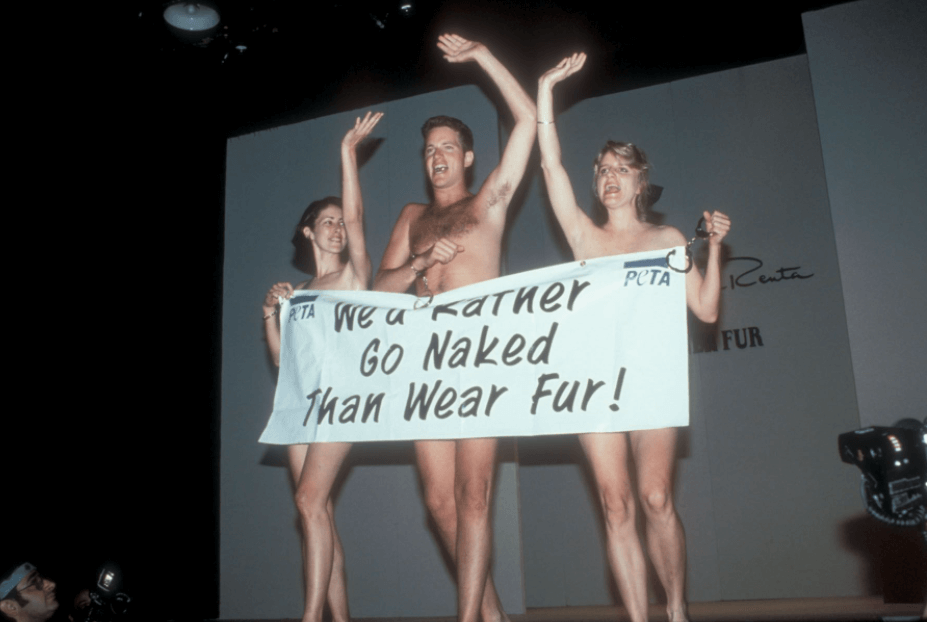What Did PETA Do Wrong?
What did PETA do wrong? We won’t apologize for calling out the rampant cruelty to animals happening all over the world. If ending speciesism—the toxic, pervasive notion that humans are superior to our fellow animals—is wrong, we don’t want to be right. A better question would be this: What does PETA do to the industries that do animals wrong by exploiting, abusing, and killing them?
We expose wrongs done to animals used for experimentation, food, clothing, entertainment, and in the pet trade. From conducting explosive undercover investigations to launching buzzworthy campaigns, our unapologetic attitude toward sparing our fellow animals suffering has indeed ruffled some feathers over the years—and we’re not talking about the ones that belong on birds.
Here are a few things PETA is doing to right the wrongs done to animals every day:
PETA is getting animals out of laboratories and replacing them with modern technology.
Each year, more than 110 million animals—including mice, rats, dogs, cats, rabbits, and monkeys—are killed in U.S. laboratories. Most are used in cruel, useless experiments. Experimenters nearly drown mice and rats, drill holes in monkeys’ skulls, conduct painful and invasive surgeries on animals without adequate pain relief, and more. A staggering majority of these experiments fail to lead to human-relevant results or treatments.
PETA’s work to blow the lid off massive animal suffering in laboratories has led to many landmark victories. Following our extensive campaigns, major pharmaceutical companies banned near-drowning tests on mice and rats, the U.S. Department of Transportation ended its requirement that rabbits be used in painful skin-corrosion tests, the U.S. Coast Guard banned the use of animals in deadly trauma training drills, the University of Wisconsin–Madison closed its laboratory for archaic sound-vocalization experiments on cats, and the notorious muscular dystrophy laboratory at Texas A&M University shut down its dog-breeding program. These are just a few of the dozens of victories we’ve helped achieve.
PETA’s Research Modernization Deal (RMD) outlines a trailblazing plan to replace archaic, unreliable experiments on animals with human-relevant research methods, such as realistic human-patient simulators and human cell–based models. Support PETA’s RMD to end wasteful tests on animals and usher in a new era of compassionate, advanced research:
PETA exposes why going vegan matters.
By exposing the egregious cruelty in the meat, egg, dairy, and fishing industries, PETA has won landmark victories for animals used for food. Our undercover investigation into foie gras production prompted the first-ever police raid on a factory farm.
After our investigation into Aviagen Turkeys Inc. revealed that workers tortured turkeys, three former employees were indicted on the first U.S. felony cruelty-to-animals charges for abusing factory-farmed poultry—and two became the first factory farmers to be convicted of abusing turkeys.
Following our exposé of Plainville Farms, 12 former workers were charged with a total of 141 counts of cruelty to animals, including six felonies across six counties, which is the largest number of charges in any factory-farmed animal case in U.S. history.
We’re making the fashion industry more compassionate.
PETA’s showstopping campaigns have led to massive animal-friendly strides in the clothing industry. By exposing the cruelty inherent in the down, leather, cashmere, exotic-skins, mohair, fur, and wool trades—from workers ripping fistfuls of feathers from birds’ sensitive skin to hasty shearers mutilating sheep with razor-sharp tools—we’re pushing companies and consumers to switch to animal-friendly clothing.
The dying fur industry is just one example of our impact on fashion. Thanks in no small part to our iconic “I’d Rather Go Naked Than Wear Fur” campaign, which ran for 30 years, hundreds of top retailers and designers—including Macy’s, Nordstrom, Calvin Klein, and Chanel—have banned fur.
PETA works to end the use of animals in the entertainment industry.
PETA’s work has been crucial to turning public opinion against the exploitation of animals for entertainment. We’ve also worked with officials to overhaul horse racing rules nationwide, persuaded travel companies to stop selling tickets to SeaWorld and other cruel operations, pushed companies like Coca-Cola to stop sponsoring abusive forms of entertainment such as the deadly Iditarod, convinced entertainment executives not to use animals in movies or TV and to use motion-capture technology instead, spearheaded legal action against abusive animal exhibitors, and facilitated the transfer of neglected animals from roadside zoos, traveling menageries, and other seedy facilities to reputable sanctuaries.
We help neglected dogs, cats, and other animals in underserved communities.
PETA’s Community Animal Project fieldworkers visit underserved communities—where dogs are often chained outside 24/7—to provide food, doghouses, bedding, toys, and compassion to companion animals. We also spay and neuter animals—more than 213,700 as of 2023—at no or low cost, animals who would otherwise reproduce and exacerbate the companion animal overpopulation crisis.
Help PETA Do Right by Animals
If someone asks you, “What did PETA do wrong?” kindly direct them to this page for a tiny fraction of what we’ve accomplished since 1980. If you want to be on the right side of history, help us continue our work for animals with a donation.



